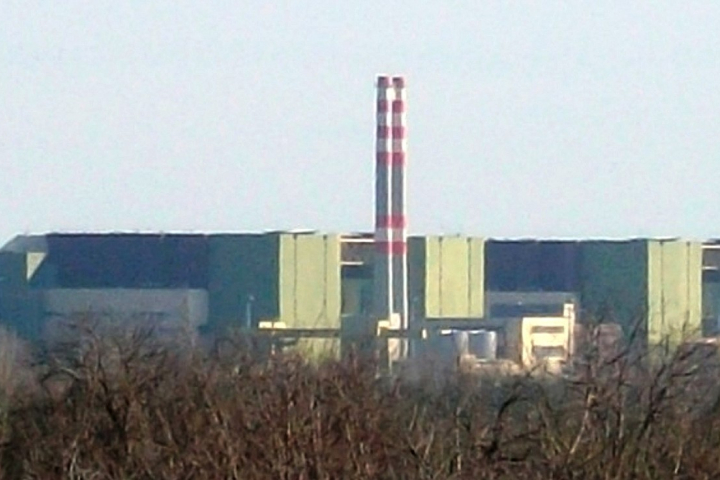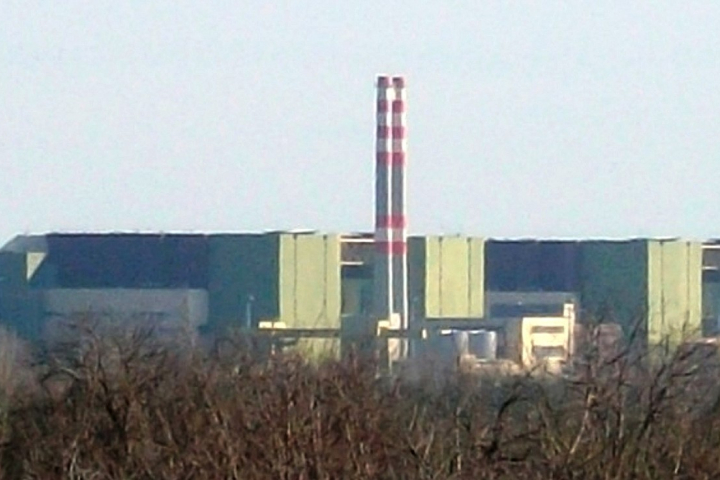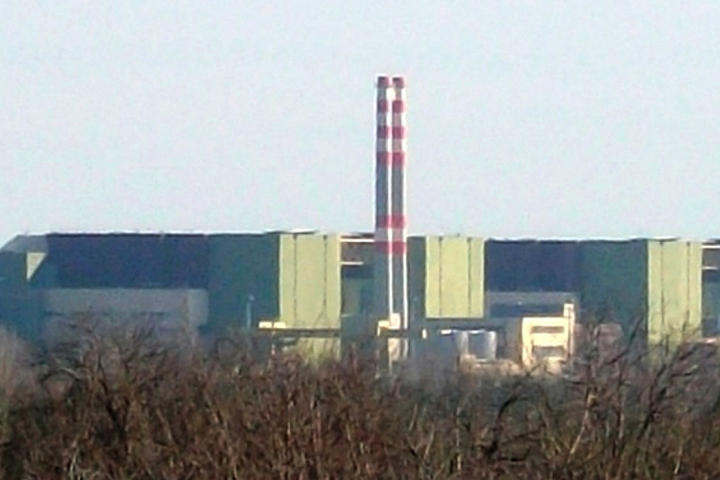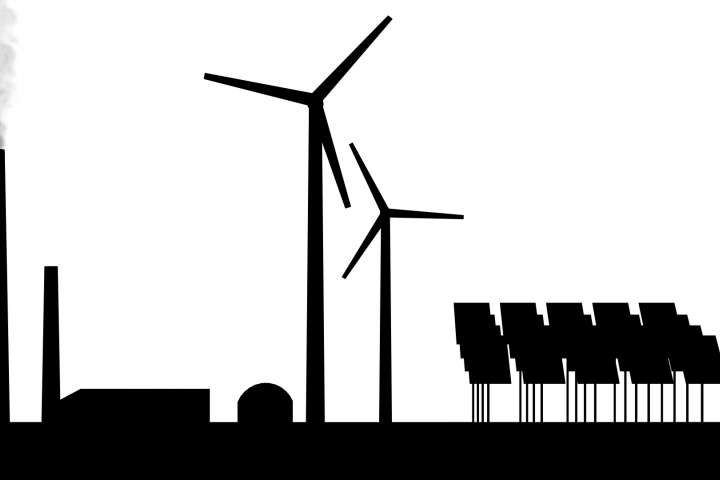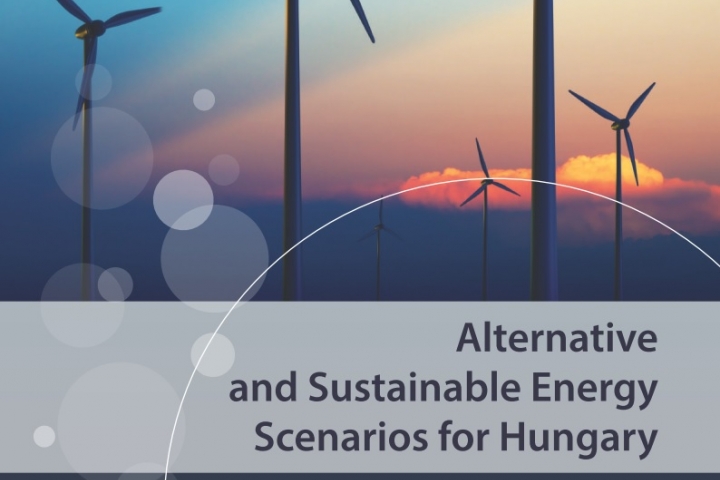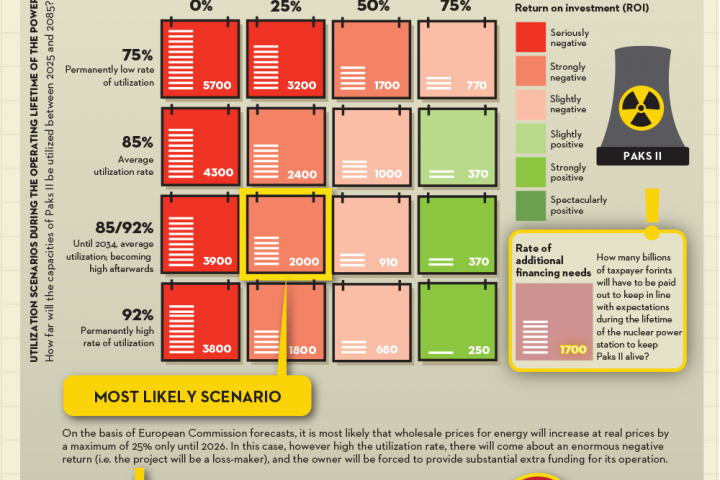The Paks Diaries - May 2024
The aim of this series is to provide monthly overviews of what is happening with the Paks II project, which the Hungarian government wants to accelerate, and the lifetime extension of Paks I NPP. This article reports on May 2024.
Direkt36 published a long and detailed article in early May about a hesitant attempt, also supported by some people connected to government, to shut the Russians out of the Hungarian nuclear industry. The article has the merit of putting together a puzzle containing French nuclear interest and Csaba Lantos' emergence as energy minister. However, this picture did not manage to be very accurate; and information used for the article were often not accurate or up-to-date enough. It makes an interesting reading, but we would like to add some additional information below:
The Hungarian government, which is beginning to be attracted to the French nuclear industry, has already been the subject of articles in the Hungarian press (in Telex, Portfolio, Szabad Europa and just a year ago (!) in Válasz Online).
Direkt36, the investigative portal, relying on its own sources, wrote that instead of confronting the Russians, Paks II Ltd wished to entrust the French company Framatome with the construction of another nuclear power plant, Paks III, albeit probably at a different site. The paper seemed to ignore the fact that
-
Framatome is Rosatom's long-standing partner in several construction projects (including Paks II),
-
Framatome cannot build a nuclear power plant, as it is a specialised supplier of only some parts of this complex technological puzzle (manufacture of fuel and fuel storage cassettes, manufacture and installation of instrumentation and control system components).
From the first point, it follows that such a "backstabbing" would certainly be punished by the Russians, especially since the construction of a nuclear power plant together with the Chinese was confirmed during Putin's visit to Beijing. Rosatom would not, and could not, ignore it if it were to be put in a difficult position in Hungary because of any "Paks III" project. (Framatome, also recently confirmed its loyalty to Rosatom.)
The second point is that EDF is able to build a French nuclear power plant (see Flamanville-3, Hinkley Point-C), a project in which Framatome, as a supplier partly owned by EDF and partly by Mitsubishi, does not take an independent decision. EDF is currently not interested in Hungary. This may change, but the French builder's attention is currently focused on the UK, its own projects in France, the Swedish and Polish construction opportunities.
Direkt36 reported that there had also been a change in the fuel supply for Russian-built nuclear reactors in Eastern European countries. According to the report, Westinghouse offered an alternative to the EU countries concerned, but Viktor Orbán has effectively banned it for Hungary. Other articles have given a more nuanced picture: last September, for example, Free Europe detailed not only that there was no real substance behind the French interest, but also that the French fuel project was, for the time being, a sham. However, their idea that they would outwit the EU's ambition to break away from the Russians by transposing Russian know-how into some sort of French company has been exposed, with embarrassing consequences for Framatome.
As for Paks, the strength of the Direkt36 article is that it states that the Prime Minister's word (also) decided the matter. Orban insisted on the Russians and on Paks II being built. This was dictated by legal and financial factors, but also by time factors, the authors of the article assessed. Nevertheless, someone else had already written this long before, in 2017. In a slightly different vein, András Perger (a former Energiaklub and current Greenpeace nuclear energy specialist) posted on the then Paksaméta blog seven years ago and concluded that in this case, delay is time, time is money, and sticking with the Russian project is a dead end.
Additionally, in May there were two more connections were added to the (potential) French one. First, Hsi Jinping, visiting Budapest, concluded an unspecified nuclear agreement with the Hungarian prime minister, and then Péter Szijjártó, visiting Tokyo, announced that Hungary had concluded a cooperation agreement with Japan. For the time being, Chinese relations and their entry into Hungary's nuclear sector, described as covering "the whole range of nuclear power generation", only means getting in touch. However, the press release on the Tokyo pact focused on the joint development of SMR technology. (For more on the promises of small modular reactors, see an earlier Energiaklub study.)
The latter, small modular reactors, is a trendy topic in parts of the world where nuclear power generation is seen as the solution, but none of the more than 70 projects registered globally has yet reached the testing stage. Therefore it is difficult to imagine that SMR technology could play such a dominant role in the world by the 2030s that the Canadian, American, Russian, Chinese, French or British companies and governments like to predict. Csaba Lantos of the Hungarian government has most often promised the advent of SMRs, but it most probably Hungary will not have such a nuclear power plant by the beginning of the next decade.
In economic terms, it was a real surprise when it turned out that Paks II ZRt. closed last year profitably for the first time in its history. However, an analysis published by 24.hu at the end of May, also made it clear that this success was not due to the company's operations. The HUF 1 158 million profit was actually the result of the state's injection of more than HUF 90 billion in so-called 'revolving debt securities'. In other words, government bonds and discount rate notes that finance the budget deficit. At the end of last year, the volume of securities amounted to 93.485 billion forints, while two years ago it was less than three billion.
The company's 2023 report also showed that it saved HUF 400 million on wage costs and cut staff costs by HUF 700 million. The article notes that in April 2023, the government, through the Minister of National Economy, approved a HUF 135 billion capital increase in Paks II ZRt, which was implemented in August (HUF 41 billion) and December (HUF 94 billion capital increase). In comparison, the fact that the fixed assets of the project as at the end of December last year had increased by HUF 20.6 billion in one year (bringing the total to over HUF 310 billion) cannot be considered major progress.
Neither is the fact that - as Péter Szijjártó has said many times since July 2022 - Paks II will be built, and it can be built. However, the investigative portal Átlátszó has uncovered that the environmental permit for the Paks II project expired in May, or may be invalid. The investigation revealed that the real problem is that the bureaucracy is pretending that everything is still fine with the permit, which was issued on 4 May 2017 for five years. Yet this permit, according to its own rules, expires if the investor does not start construction or pre-construction works within five years, and according Átlátszó, there is no question of this being the case.
According to the investigative portal, Paks II Zrt. still does not have a number of the necessary licenses, although they are required to start construction. For example, the National Directorate General for Disaster Management of the Ministry of Emergency Situations has been informed that the water permit procedure has not even started, so the Paks II project does not have a water permit, which is a prerequisite for the start of the construction preparation.
However, when Átlátszó approached the Baranya County Government Office, which had issued the environmental permit 8 years ago, about the validity of the permit, the authority gave an evasive answer, and then responded to the public interest data request in a similar way. (The Baranya County Government Office refused to issue the certificates requested by Átlátszó, claiming that it would violate national security interests or intellectual property rights.) The Baranya governmental body resolved the definition of "preparatory works for construction" by including all works "aimed at fulfilling the obligations necessary for the realisation or preparation of the project or the commencement or performance of works necessary for the establishment of the foundation for the construction of the project, which are the responsibility of other authorities." However, this is nonsense. This would render the environmental permit impossible to be withdrawn after any minor works. And it is more than worrying that the Baranya county authorities are thus making the validity of the environmental permit subject to a condition for which there is no legal basis.

